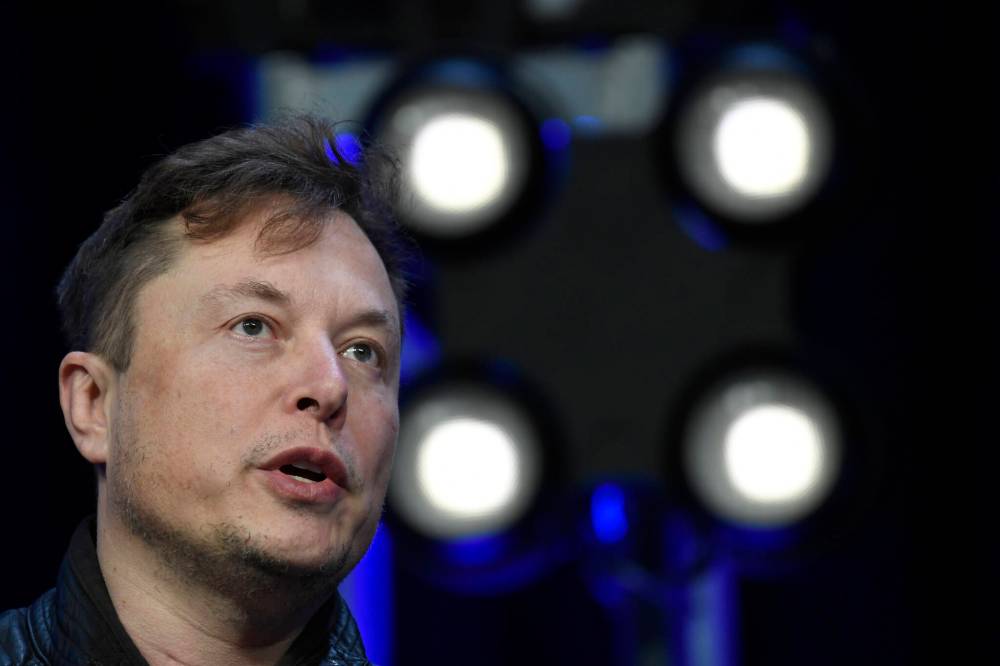Part dream, part nightmare While Twitter has given voice to the voiceless, it has also turned up the volume for the virulent; its erratic new owner is unlikely to repair the deteriorating ‘global town square’
Read this article for free:
or
Already have an account? Log in here »
To continue reading, please subscribe:
Monthly Digital Subscription
$0 for the first 4 weeks*
- Enjoy unlimited reading on winnipegfreepress.com
- Read the E-Edition, our digital replica newspaper
- Access News Break, our award-winning app
- Play interactive puzzles
*No charge for 4 weeks then price increases to the regular rate of $19.00 plus GST every four weeks. Offer available to new and qualified returning subscribers only. Cancel any time.
Monthly Digital Subscription
$4.75/week*
- Enjoy unlimited reading on winnipegfreepress.com
- Read the E-Edition, our digital replica newspaper
- Access News Break, our award-winning app
- Play interactive puzzles
*Billed as $19 plus GST every four weeks. Cancel any time.
To continue reading, please subscribe:
Add Free Press access to your Brandon Sun subscription for only an additional
$1 for the first 4 weeks*
*Your next subscription payment will increase by $1.00 and you will be charged $16.99 plus GST for four weeks. After four weeks, your payment will increase to $23.99 plus GST every four weeks.
Read unlimited articles for free today:
or
Already have an account? Log in here »
Hey there, time traveller!
This article was published 04/11/2022 (1136 days ago), so information in it may no longer be current.
Within his first week as Twitter’s new owner, billionaire Elon Musk declared that the social media platform was “freed,” shared a link to a baseless conspiracy theory about the man who is accused of attacking Nancy Pelosi’s husband with a hammer and announced that, in the near future, Twitter would charge users US$8 a month to keep certain perks.
It felt like a social media trifecta for the 2020s: a moralizing brag, a misleading lie and then a monetization squeeze.
Among users, the reaction was chaotic. Musk’s fans revelled in his pronouncements, but among many other regular users, a sort of despair set in. Quite a few announced they would quit Twitter. Some may have already done so.
To folks that never got sucked into Twitter, the storm over its future under Musk-led private ownership may seem like a lot of drama about nothing, but it matters. Social media has changed our society irrevocably, in ways both good and bad; we’ve yet to fully understand, let alone reckon with, the depth of its effects. What happens online doesn’t stay there.
Social media has changed our society irrevocably, in ways both good and bad; we’ve yet to fully understand, let alone reckon with, the depth of its effects.
And of all the social media platforms that rose to prominence over the last two decades, Twitter has been one of the most curious. It was never too big, as these things go — compare its almost 300 million active monthly users to Facebook’s 2.91 billion — yet it soon wielded an outsize influence on the public dialogue, and particularly on media.
Mostly, it was a matter of who turned to Twitter, and why. If Instagram and, later, TikTok, rewarded the most adept curation of image, then Twitter, with its bite-size, largely text-focused format and wide-open community structure, tended to put the focus on the curation and sharing of information and ideas. It has been a place to thrash out what everything means.
That alchemy has altered our discourse in dramatic ways, even for those who don’t use the platform. By the time many stories hit the news — even if it’s the same day — journalists covering them have already been exposed to the full breadth and depth of public response. That’s changed how we cover things and impacts how they’re seen.
To be clear, this effect hasn’t always been for the good. It has, for instance, fostered an entire category of news best described as “we’re talking about it because everyone on Twitter is talking about it.” But those issues tend to be the kind that provoke the biggest reaction and most social friction even if they don’t, to be blunt, have much real impact in everyday life.
But overall, Twitter sparked a sea change in which voices rise to the top. The platform made many careers; there are quite a number of authors who got noticed because, to put it simply, they had really good tweets. And Twitter had a way of inviting communities and real friendships to coalesce through the quality of interactions, the quality of the ideas shared.

In that, we got a glimpse of the most utopian vision of social media: it opened the conversation in ways nothing else did. It allowed subject experts to speak directly to a broad audience. Above all, it allowed voices that had long been shut out of a public discourse to assert their experiences and challenge how those experiences were represented.
So Twitter became the place where people with disabilities could insist on being included in discussions about public policy; where Indigenous people could push back against how issues impacting their communities were covered. When major news happened, Twitter was where to find Iranians talking about Iran, Afghans about Afghanistan, Ukrainians about Ukraine.
There is something beautiful about this, something that still feels exciting. It’s the potential of a world we are able to see through many eyes that are not our own, one in which nobody is spoken for and can speak for themselves. That promise about Twitter is true… and yet, and yet, and yet.
And yet, Twitter has struggled to manage what it has become. Abuse and hate speech infected the platform, but for years it dragged its feet on moderation. Its open format makes it incredibly prone to manipulation by bad actors who flood the site with comments designed to spread radicalization and overwhelm political discussions with the extreme.
In recent years, new moderation tools and more aggressive banning smoothed some of the worst of those abuses. Yet just this year, I have reported tweets that, in just-coy-enough language, called for Jews to be eradicated from North America, only to get a response, weeks later, that the tweet in question didn’t violate the platform’s rules.
That created a problem. As one commenter pointed out, normal people don’t want to hang out in a conversational space with racists and antisemites. Advertisers, too, have reason to be wary of such a platform; by this year Twitter was bleeding once-heavy users, the ones who produce the content that makes others log on.
Normal people don’t want to hang out in a conversational space with racists and antisemites.
Still, so long as Twitter was flailing along in more or less the same way, it offered just enough healthy community and just enough of that more beautiful social media dream to keep users at least somewhat invested.
Twitter, it’s often said, became the world’s digital town square. The metaphor isn’t always apt — I’ve yet to see a town square where you can take in a lengthy debate about foreign policy, a deep explanation of immunology and a video of a particularly cute dancing bird in a span of three minutes — but it speaks to how much we yearn for such a thing.
Now, in the wake of the Musk purchase, we are forced to come face to face with the dream’s main problem, the one we always knew but maybe didn’t really want to accept. Town squares are public spaces and social media is not. As much as we need a way to hear from everyone who comes to it in good faith, it will never be secure under private ownership.
So Musk preens about restoring free speech to Twitter, which presumably means loosening up its already shaky moderation. He’ll certainly look past the fact that the company’s second-largest shareholder is Saudi Arabia’s Kingdom Holding Company, which has ties to Saudi Crown Prince Mohammed Bin Salman, not exactly a champion of free speech.
And Musk plans to start charging users for perks that include, most notably, boosting their responses — meaning that you’ll have to pay for your tweets to be most widely seen. Musk, bizarrely, announced this change as giving “power to the people.” The effect can only be the opposite, the antithesis of the best thing about Twitter. It will make being heard into a privilege.
This will change Twitter, significantly. The platform was already losing users amid the grinding frustrations of its format; most will not wish to pay to produce the kind of content that made Twitter popular in the first place. One way or another, a major global influence on our public dialogue will change, and with it, some of what was good will be lost.
This isn’t a eulogy for Twitter, whatever it will become under Musk’s management. It’s a eulogy for the hope that we once had for it. And maybe that hope was always more than a little naive, but perhaps all hope has to be, in order to endure the things that attack and undermine it.
Something else will emerge to bring us together. I hope so. I know it.
melissa.martin@freepress.mb.ca
Our newsroom depends on a growing audience of readers to power our journalism. If you are not a paid reader, please consider becoming a subscriber.
Our newsroom depends on its audience of readers to power our journalism. Thank you for your support.











